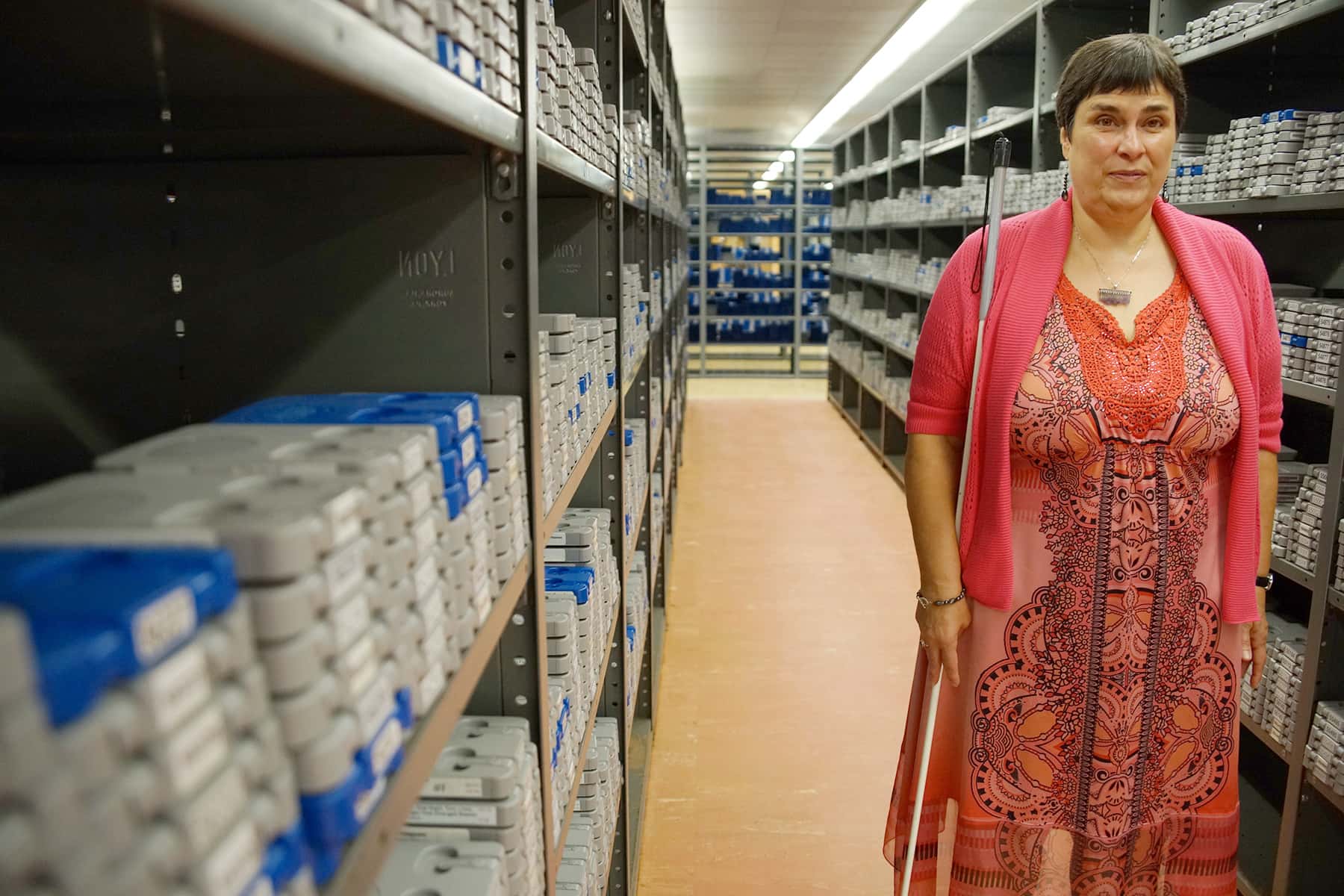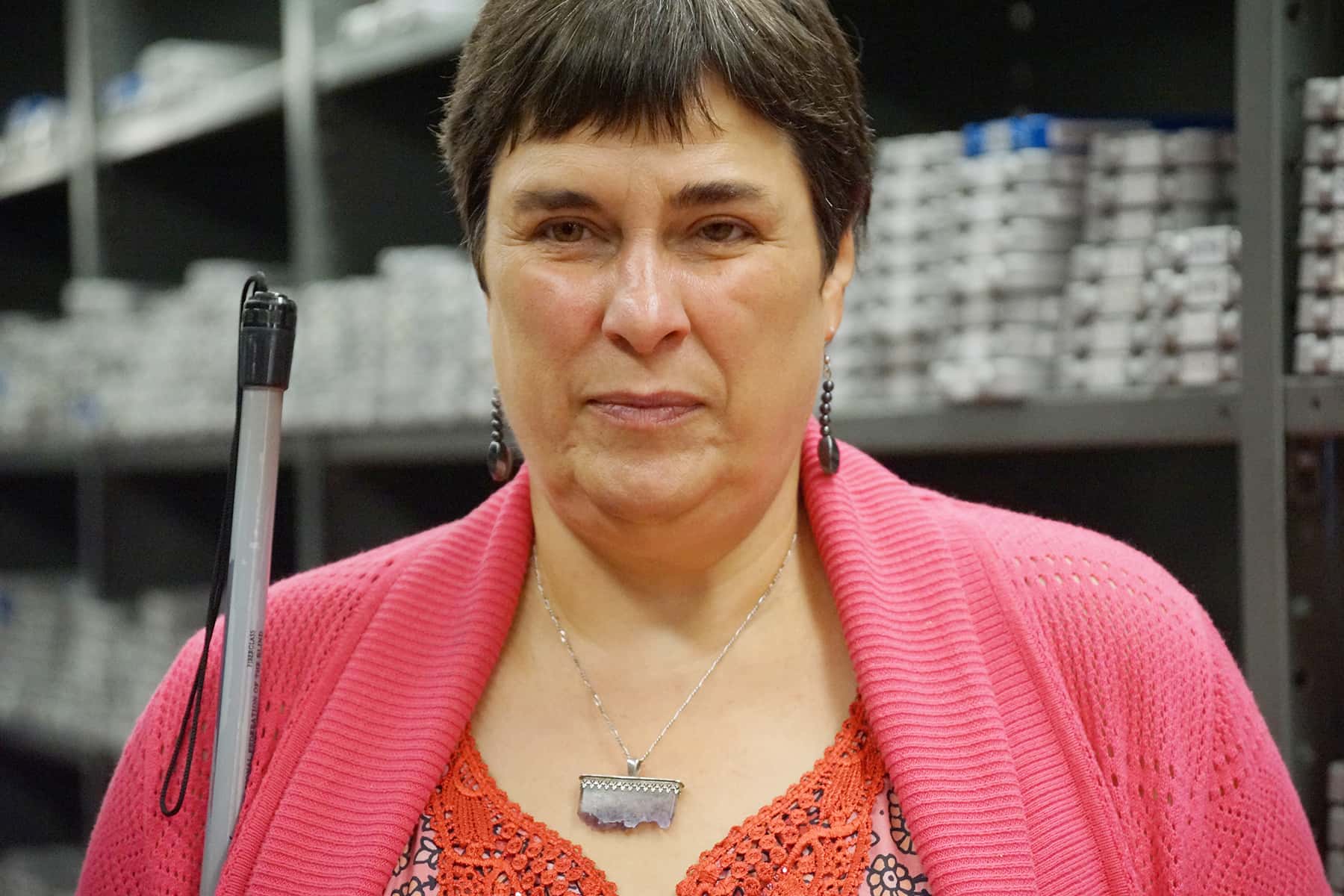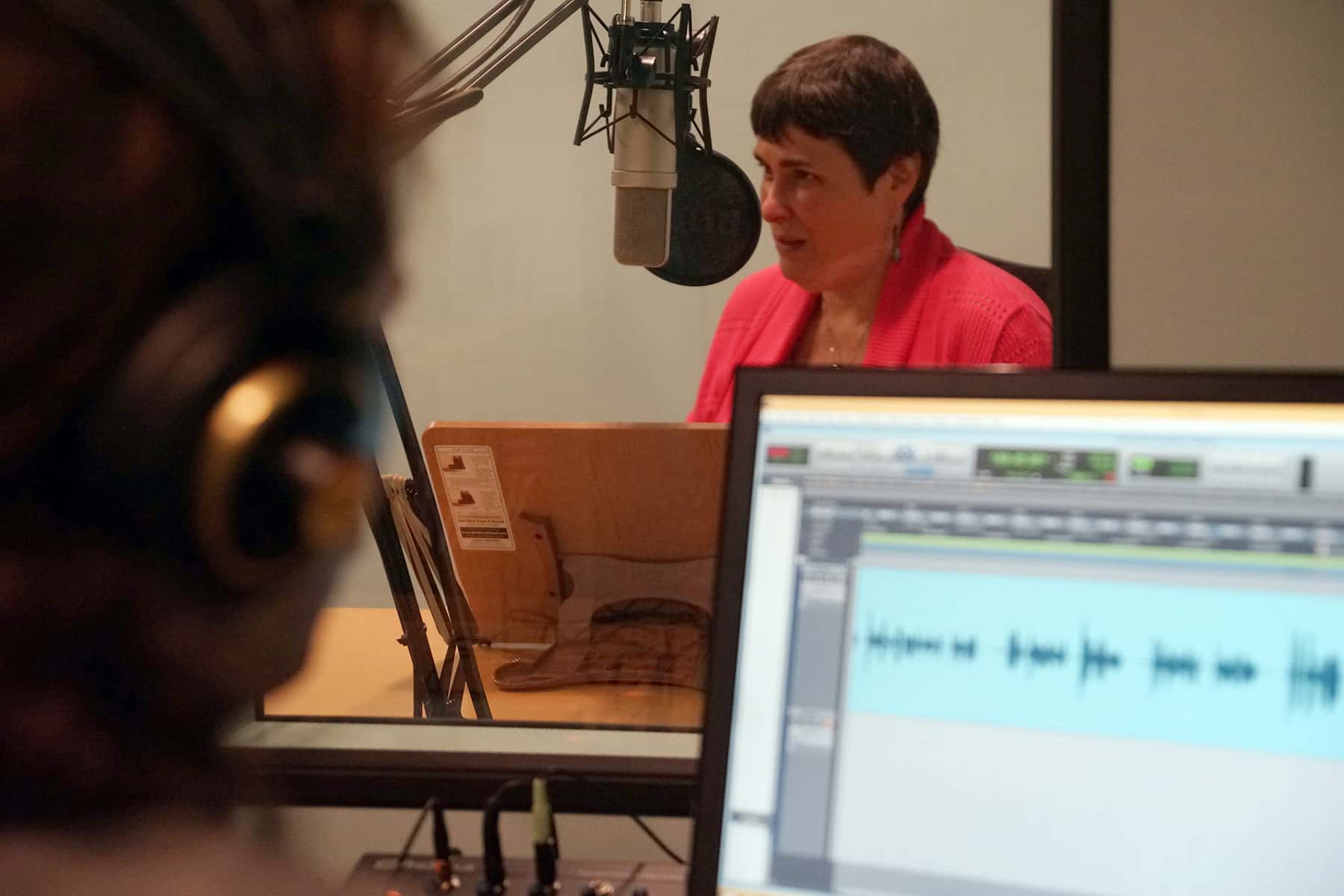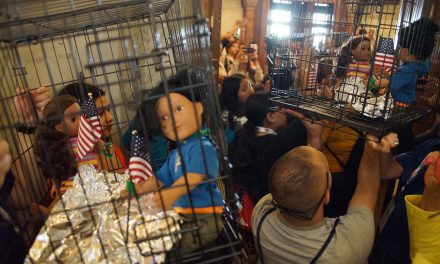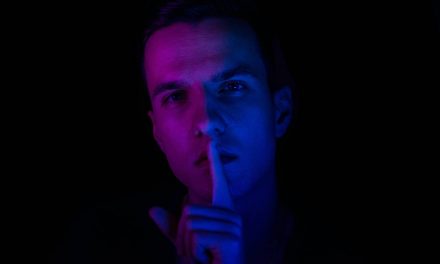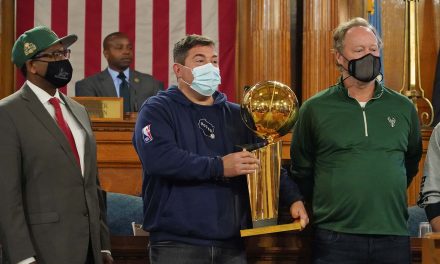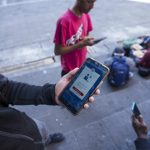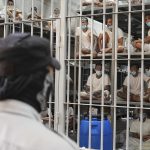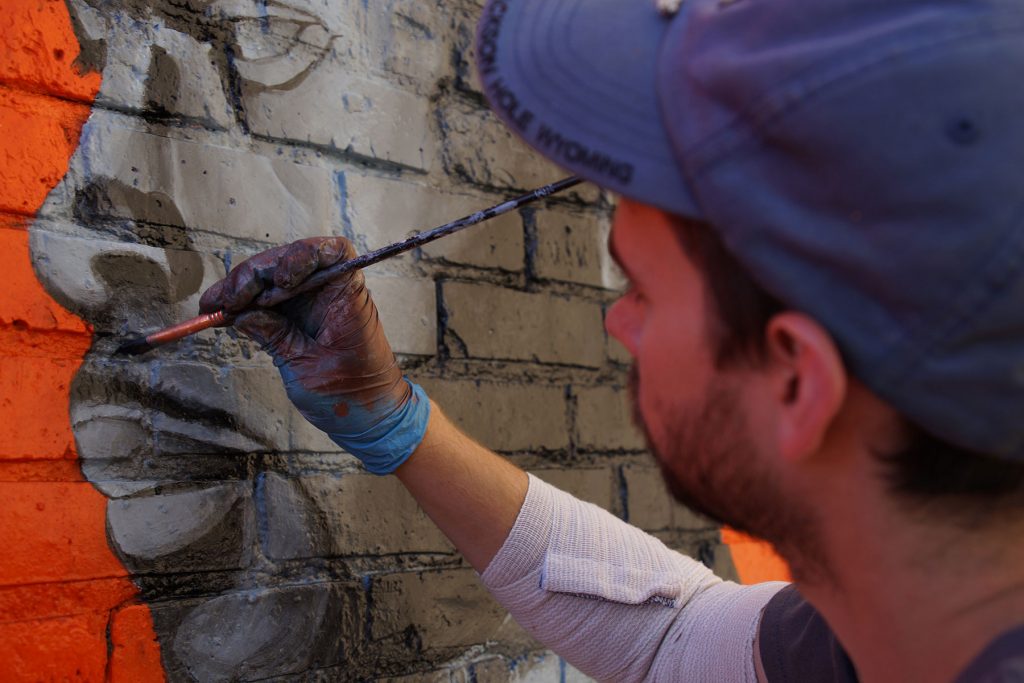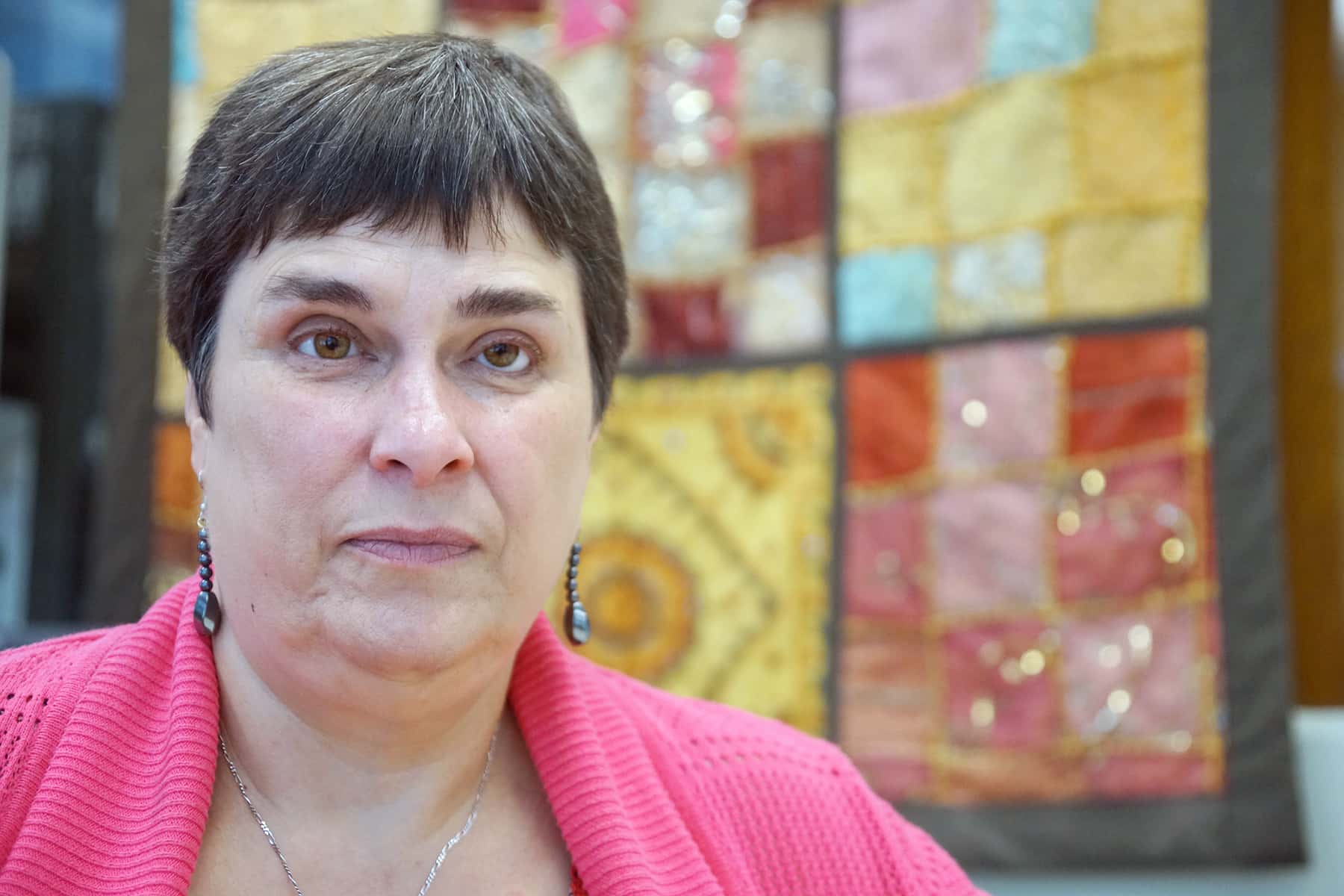
The most difficult experience of growing up blind was not the inability to see, for Cheryl Orgas it was dealing with the stereotypes other people had about blindness and what she could accomplish.
As a wife, mother, and director of a nonprofit that provides alternative ways for people with print disabilities to read, she has dedicated her life to helping others overcome physical challenges and celebrate their uniqueness.
Q&A with Cheryl Orgas
Milwaukee Independent: What was the most difficult experience you had growing up with blindness?
Cheryl Orgas: The most difficult experience in growing up blind was having to combat all the stereotypes about blindness. Others thinking I can’t speak for myself because I am blind, which must also mean I can’t use the stairs, hear well, or answer for myself, and countless other examples.
Milwaukee Independent: What is your fondest memory of Sister Melmarie Stoll, and how did she influence your life?
Cheryl Orgas: My fondest memory of Sister Mel is feeling her unwavering belief in me. She was patient, tough, kind, and loving. Sister was always looking for ways to give her students, including me, many opportunities in life, whether it be ballet class, piano lessons, or fun at the lake swimming and using inner tubes.
Milwaukee Independent: Can you describe the biggest challenge of being a blind parent of a child with normal vision?
Cheryl Orgas: The biggest challenge as a blind parent was experiencing the judgment of others. Even before Christopher was born, an acquaintance saying that we would need a nanny, for how could Bill and I parent without someone sighted with us. Also, hearing people say to my 4 year old, ‘You are doing such a good job taking care of your mom.’ I remember being at the park letting Christopher climb the jungle gym and someone asking ‘How can you let him do that when you can’t see him?’
Milwaukee Independent: Parents today overly coddle children without any disabilities, what can they learn from your experience?
Cheryl Orgas: It’s important for parents to teach children to be independent, to problem solve, and to fully experience the world around them. Blind parents keep their children close when they are young and gradually expand their world, so that children become independent. My child was not one of those children running through stores or climbing under clothes racks. He had to hold my hand until I knew that when he was called he would answer or come back to me or to his dad, who is also blind. Christopher is now a very independent adult, a wildland fire fighter in Utah. We gave him security, many life experiences, and helped him find the confidence to trust himself.
Milwaukee Independent: How did you become interested in doing social work and what was the biggest lesson the work taught you?
Cheryl Orgas: As an adolescent I was the listener, the quiet observer, and I wanted to help others. I just knew that’s what I wanted to do. Though my goals changed from psychiatrist to psychologist to social worker, the goal was to do therapy. What I learned is that truly listening to the essence of what someone is saying is crucial, to know when to let people struggle and when to throw a life line, and to understand that although everybody’s experience is different, what we all have in common is sharing similar feelings. It’s important to celebrate our differences, our uniqueness, and to understand that we are more similar than we let ourselves know.
Milwaukee Independent: What is the most common misconception that people with sight have about blindness and of people who are vision impaired?
Cheryl Orgas: The biggest misconception is that we blind people are less than the sighted, can’t work, can’t take care of ourselves, can’t live alone, can’t be parents, and such.
Milwaukee Independent: What difference has technology made in the quality of life for people with vision disabilities?
Cheryl Orgas: Technology has made information more available than ever before. For instance, there is a digital reader that I can carry in my pocket and listen to a book while I do the laundry or make dinner. There is the digital player available to blind people through The Wisconsin Talking Book and Braille Library (WTBBL) that brings many books to blind people. In fact Audio and Braille Literacy Enhancement (ABLE), the organization I am Executive Director of, in our state of the art ABLE Sound Center is recording books by Wisconsin authors that people couldn’t get any other way if it wasn’t for the collaborative between ABLE and WTBBL. Braille is more available than ever before because of technology. Don’t buy into the misconception that braille is obsolete, as it is a very powerful reading tool that is now available in hard copy braille and with refreshable braille displays.
Milwaukee Independent: Technology has helped bridge the gap for people with blindness, but where does it fall short?
Cheryl Orgas: Technology is a double edged sword. The world of technology is changing so fast, we are constantly having to adapt the tools to meet the changes. Apple products are useful to blind people right out of the box. What’s important is for products to be accessible from the beginning rather than having to figure out how to adapt products. Imagine how many products that have digital menus that just aren’t accessible, whether it be a washing machine, a kitchen range, or a weather station. We are constantly having to adapt to try to keep up with technological changes.
Milwaukee Independent: Is cost the only barrier in getting modern technology tools into the hands of people with vision impairment?
Cheryl Orgas: Cost is a huge barrier. Also getting people access to training so they can learn how to use the technology is a challenge.
Milwaukee Independent: How did you become involved with ABLE (Audio and Braille Literacy Enhancement), and what does it mean to you to be the first blind person to lead the nonprofit organization?
Cheryl Orgas: I feel so privileged and honored to lead this organization into the future. ABLE has been a part of my life since I was a little girl. This organization put my materials into braille from first grade on, and I have used the services of this organization throughout my whole life. As a professional I have the skills to lead this organization into the future, as a blind person I have a deep understanding of the importance of literacy and information. Literacy is education and information is power.
Milwaukee Independent: Can you explain the mission of ABLE and what is the biggest day-to-day challenge the organization faces?
Cheryl Orgas: Our mission is to provide alternative ways for people with print disabilities to read, whether that be a complex tactile document for a biology class for a sophomore in high school, a braille children’s book for a blind parent to read to their sighted child, or an audio version of a health care manual. People who are blind or print disabled deserve access to standard print. On a day to day basis, we are always dealing with deadlines. Braille and audio production takes time and many times people need information almost immediately. We are always dealing with the pressure of getting information out to people quickly. We also are always in need of volunteers who are willing to volunteer over a long period of time. And I am always looking for new funding sources.
Milwaukee Independent: What is the biggest service ABLE provides Milwaukee Public Schools, and how does your effort make a difference in the education of students with blindness?
Cheryl Orgas: Our most crucial service to Milwaukee Public Schools is getting braille and tactile materials into the hands of blind children and youth at the same time as their sighted peers get print material. Getting these materials to our MPS students gives them a chance to have a level playing field with their sighted peers.
Milwaukee Independent: In addition to supporting blind people with braille and audio transcription services, how else does ABLE empower members of the community with disabilities?
Cheryl Orgas: We are always looking for ways to be role models for our school community. One example is doing book groups with middle schoolers giving students a chance to discuss not only the book read but being able to talk with blind adults about living independently in the world and participating fully in society. We are also forging relationships with other organizations to both offer braille and audio materials, and to consult regarding the best way to present those materials. A perfect example is our collaboration with the Milwaukee Public Museum, a 3 year relationship, culminating in the Crossroads of Civilization exhibit that has touchable objects to help bring the exhibit alive, something that we all discovered was necessary when tactiles couldn’t bring certain objects to life.
Milwaukee Independent: What relationships have you built between ABLE and the sighted community, and what has been the impact?
Cheryl Orgas: MPM is one crucial example of our impact in the community. Not only did we offer materials and consultation but we helped change the paradigm at the Museum from ‘just look, don’t touch,’ to ‘How can exhibits be made accessible from the ground up.’ We are also forging a relationship with the Urban Ecology Center, not only offering braille materials, but dialoguing about participating fully as blind people in their many wonderful activities. We have a very collaborative relationship with the Milwaukee Public Library and WTBBL, we are very much embraced and respected by both. When we built our nearly $200,000 state of the art ABLE Sound Center, the Milwaukee Public Library management, from Paula Kiely to the facilities manager, Duane Wepking, to the Management Librarian of WTBBL, Linda Vincent, totally embraced the project and made it very easy and possible to complete. Without their agreement and participation, it couldn’t have happened. These are just a few examples of our impact in the community as the audio and or braille source for many organizations in Milwaukee and beyond.
Milwaukee Independent: Have you worked with military veterans, and what is their biggest challenge to adjusting to life in Milwaukee with a battlefield disability?
Cheryl Orgas: Any books we do for the Wisconsin Talking Book and Braille Library are readily available to veterans. In addition, the staff at the VA knows of our services.
Milwaukee Independent: Have you known anyone with a vision impairment who used books in braille as part of their education to learn a foreign language?
Cheryl Orgas: Many blind people have learned a foreign language and we are creating braille materials in German for one high schooler and did materials in Spanish for a middle schooler. I myself took Latin and had many a material in braille. Learning a foreign language is very much a part of education for many blind people.
Milwaukee Independent: What accomplishment, either personal or professional, are you most proud of and what is your next goal?
Cheryl Orgas: I have so many experiences to be grateful for. When I look back on my life, what I am most proud of is finding ways to be a part of the community in work and in leisure that are truly authentic. Whatever I have set my mind on I have tried to do it fully. My goal is to continue to live authentically in the world. As I do this, I hope to continue to make sure ABLE is meeting the needs of our community. We’ve changed a lot in the last 10 years to adapt, but our mission has not changed. I am so proud to be a part of this organization.
Milwaukee Independent: Is Milwaukee doing enough to support the visually impaired, and what more can the public do to help?
Cheryl Orgas: Transportation is a significant challenge for blind people. I very much appreciate the services offered by our Milwaukee transit services, but with more resources available, it would be very helpful to have more bus routes, faster services, and more bus rapid services like those planned for downtown out to the medical complex. Also regional public transportation has been cut again and again. We very much need more regional bus service.
Milwaukee Independent: What message do you have for new parents or those who have young children with blindness?
Cheryl Orgas: Find other experienced parents to support you and find blind people to talk to so you can know all the possibilities available to your blind children.
Milwaukee Independent: What is your hope for the future of Milwaukee, and its support for those with disabilities?
Cheryl Orgas: I would love braille and audio materials to be a part of every organization and agency in town. I would like to see people with disabilities included in every facet of Milwaukee life, and I would ask that the community not let their internal fears about disability keep anyone from getting to know those of us who have a disability. Don’t be afraid of the word blind, don’t be afraid to communicate. Don’t be afraid to include people with visual impairments in your world and if you don’t know what to do, just ask.
Milwaukee Independent: What advice would you offer to someone who is visually impaired about following their dream?
Cheryl Orgas: Follow your dream, don’t let others tell you it’s not possible, find blind people who are doing what you want to do and get the tools of blindness so that you can participate on a level playing field.

